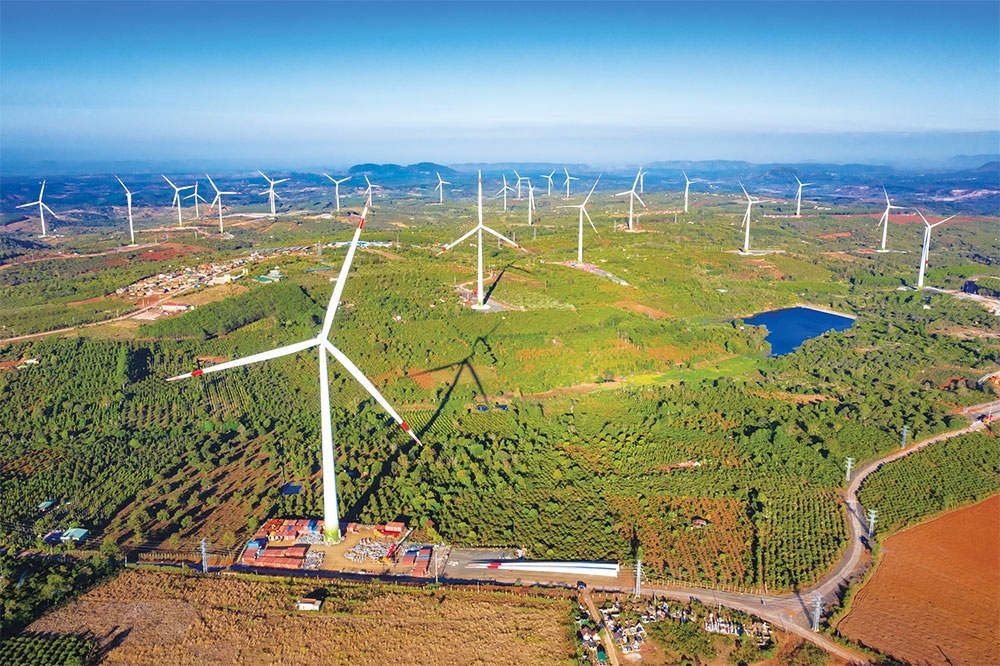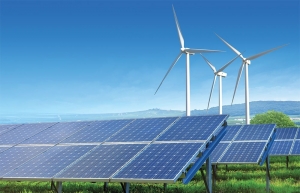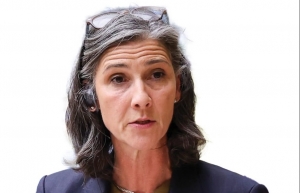Global partners team up for net-zero dream
The European Commission (EC) last week announced that leaders from Vietnam and the International Partners Group – which includes the EU, UK, France, Germany, United States, Italy, Canada, Japan, Norway, and Denmark – have agreed on a bold just energy transition partnership (JETP) worth $15.5 billion.
“The partnership will support Vietnam to deliver on its ambitious net-zero 2050 goal, accelerate the peaking of its greenhouse gas (GHG) emissions, and transition away from fossil fuels to clean energy,” said an EC press release. “The JETP will mobilise an initial $15.5 billion of public and private finance over the next 3-5 years to support Vietnam’s green transition.”
The partnership will assist Vietnam in working towards some new targets, including advancing the projected peaking date for all GHG emissions in Vietnam from 2035 to 2030; reducing peak annual power sector emissions by up to 30 per cent, bringing forward the peak date by five years to 2030; limiting Vietnam’s peak coal capacity to 30.2GW down from the current plan of 37GW; and accelerating the adoption of renewables so that renewable energy accounts for at least 47 per cent of electricity generation by 2030, up from the current 36 per cent goal.
“The successful delivery of these ambitious targets will result in around 500 megatons of emissions saved by 2035,” said the EC.
 |
| Major economies in North America and Europe have thrashed out an energy transition deal with Vietnam, photo Le Toan |
Just over a year ago, Vietnam impressed the international community with its strong commitment to reach net-zero in GHG emissions by 2050. “Although we are a developing country that started industrialisation only over the three decades ago, Vietnam will capitalise on its advantage in renewable energy and take stronger measures to reduce GHG emissions,” stated Prime Minister Pham Minh Chinh. “To this end, we will make use of our own domestic resources, along with the cooperation and support of the international community, in order to achieve net-zero emissions by 2050.”
Under current projections by the United Nations Development Programme, 40 per cent of the land area of Vietnam’s Mekong Delta will be inundated by 2100. This will directly impact the local population and have major consequences for national rice production, export rice production, national aquaculture production, and fish exports.
Over the past 50 years, the average temperature in Vietnam has increased by about 0.5-0.7°C, while the sea level has risen by about two centimetres.
Over the next year, Vietnam will work with partner nations to develop and adopt the Vietnam JETP Resource Mobilisation Plan, which will enable the implementation of the JETP funding and strategy.
According to the EC, ensuring the transition away from fossil fuels is “just” lies at the centre of the JETP. A just transition will not only help Vietnam meet climate goals but also secure a resilient and prosperous future for its people, reducing the impacts of pollution and supporting economic growth and new jobs.
Leaders from many of the other nations involved have vowed to accompany Vietnam in its journey to achieve net-zero emissions.
“The JETP model is a game changer in the fight against climate change – using international aid to unlock billions of US dollars of private finance,” said British Prime Minister Rishi Sunak. “Vietnam is a dynamic, emerging economy at the heart of Southeast Asia. The investment we are making today means it can cut its emissions while simultaneously creating new jobs and growth. Together, we will deliver a cleaner, greener future for Vietnam and our planet.”
The United States is also involved in supporting other nations in the energy transition. “Vietnam has demonstrated leadership in charting an ambitious clean energy transition that will deliver long-term energy security,” said US President Joe Biden.
“The United States is proud to be a partner in this effort. Vietnam’s historic commitment will catalyse investment and economic growth and create tremendous opportunity for the Vietnamese people, while advancing the fight against the global climate crisis.”
EC President Ursula von der Leyen also commented, “With investments from international partners, Vietnam can boost renewable energies and enhance its energy security and autonomy. We will help Vietnam to start reducing its GHG emissions five years earlier than planned, and dramatically reduce its coal power use. This partnership will help Vietnam to build a 21st century power sector, energising its economic growth and bringing environmental and health benefits to its citizens.”
 | Vietnam up to the challenge in hitting net-zero targets At COP27 last month, Vietnam took further action to fulfil its net-zero goals by 2050 through a strong energy transition, which has been putting pressure on long-term energy policy revisions to ensure international commitments. |
 | Green finance and technology solutions for net-zero emissions As climate change has become a serious international issue, many countries have taken action to reduce greenhouse gas emissions and achieve net-zero emissions by 2050. In Vietnam, the government has made a tremendous effort to combat climate change by ratifying the Paris Climate Agreement in 2016, pursuing the National Green Growth Strategy for 2021-2030, and implementing the Law on Environmental Protection which came into effect at the beginning of 2022. |
 | How Vietnam can utilise wide-ranging climate finance The government’s landmark announcement in 2021 that Vietnam will achieve net-zero carbon emissions by 2050 and phase out coal power by the 2040s was both bold and visionary. It marks a significant milestone in the country’s development trajectory. |
What the stars mean:
★ Poor ★ ★ Promising ★★★ Good ★★★★ Very good ★★★★★ Exceptional
Related Contents
Latest News
More News
- Bac Ai Pumped Storage Hydropower Plant to enter peak construction phase (January 27, 2026 | 08:00)
- ASEAN could scale up sustainable aviation fuel by 2050 (January 24, 2026 | 10:19)
- 64,000 hectares of sea allocated for offshore wind surveys (January 22, 2026 | 20:23)
- EVN secures financing for Quang Trach II LNG power plant (January 17, 2026 | 15:55)
- PC1 teams up with DENZAI on regional wind projects (January 16, 2026 | 21:18)
- Innovation and ESG practices drive green transition in the digital era (January 16, 2026 | 16:51)
- Bac Ai hydropower works stay on track despite holiday period (January 16, 2026 | 16:19)
- Fugro extends MoU with PTSC G&S to support offshore wind growth (January 14, 2026 | 15:59)
- Pacifico Energy starts commercial operations at Sunpro Wind Farm in Mekong Delta (January 12, 2026 | 14:01)
- Honda launches electric two-wheeler, expands charging infrastructure (January 12, 2026 | 14:00)

 Tag:
Tag:


















 Mobile Version
Mobile Version